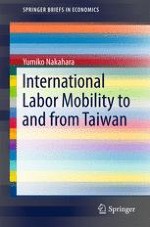2017 | Supplement | Buchkapitel
4. Skilled Migration to and from Taiwan
verfasst von : Yumiko Nakahara
Erschienen in: International Labor Mobility to and from Taiwan
Verlag: Springer Singapore
Aktivieren Sie unsere intelligente Suche, um passende Fachinhalte oder Patente zu finden.
Wählen Sie Textabschnitte aus um mit Künstlicher Intelligenz passenden Patente zu finden. powered by
Markieren Sie Textabschnitte, um KI-gestützt weitere passende Inhalte zu finden. powered by
